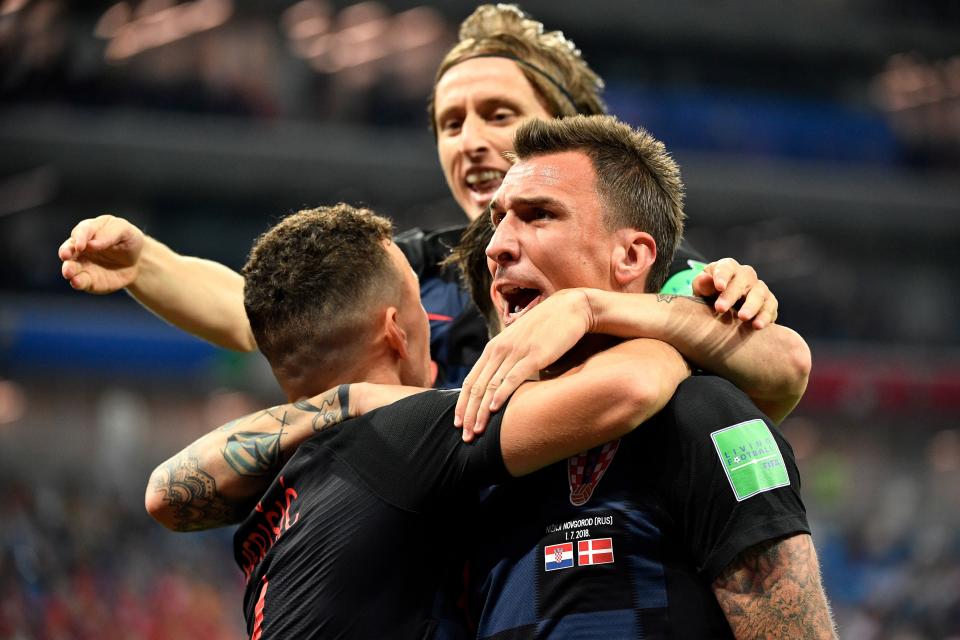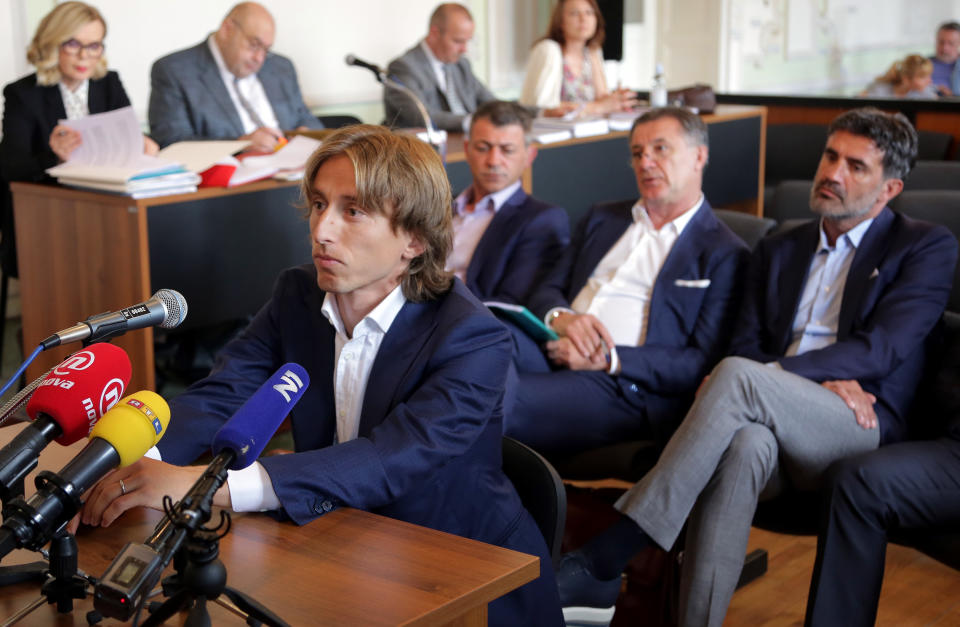Why Croatians are divided over their team's World Cup success
You’d think that coming in as an outside dark horse and illuminating the tournament with a string of scintillating performances on the way to the quarterfinals would get Croatians united behind their World Cup team. Unfortunately, you’d be mistaken.
After storming through the Group Stage, winning all three matches, giving up just one goal and systematically taking down Lionel Messi’s Argentina, Croatia squeaked by Denmark on penalties and is now on track to equal or better its best-ever World Cup campaign. That was 20 years ago when then-fledgling nation finished third in France ’98. Along the way, the team has played some of the most fluid, exciting attacking soccer we’ve seen at this summer’s World Cup.

And yet in spite of their team’s unexpected success in Russia, the reactions of many Croatian fans back home range from indifference to outright loathing.
Why, you might ask? You could say, it’s complicated.
Outside of the United States, international soccer has much stronger connections to patriotism and national identity. Nowhere is this more so than in Balkan states like Croatia where the line between politics and sport is less defined, or at times, altogether non-existent.
The political, social and ethnic divides that carry over from the conflicts that reshaped the region following the demise of the Soviet Union still exist today. As does the rampant corruption. People in Balkan nations like Croatia have long memories. They hold grudges.
Modric, Lovren and the trial of Zdravko Mamic
The central figure in Croatia’s success at the 2018 World Cup has been Luka Modric. But the silky, talented midfielder who plays his club soccer for Real Madrid is also one of the central figures in a corruption scandal that has divided Croatia as a soccer nation.
In 2008, Modric was a promising 22-year-old midfielder who plied his trade for Croatian powerhouse Dinamo Zagreb. For a player of his talents, it was only natural that sooner rather than later, he would attract the interest of a club in one of Europe’s top leagues. So it was that in 2008, Modric made a move to English Premier League side Tottenham Hotspur.
The man who brokered the deal was Zdravko Mamic.
At the time, Mamic was chief executive of Modric’s club, Zagreb, and the player’s agent. The conflict of interest was glaring. But the corruption that remains rampant in Croatian soccer even today, allowed Mamic to get away with playing both sides of the field.
As head of the country’s biggest soccer club side, he could sign young players up, like Modric and fellow national team talent Dejan Lovren, tie them to contracts that entitled him to large portions of their earnings over the course of their careers, and broker lucrative deals that saw them transfer to wealthy clubs around Europe. Spurs and then Real Madrid in Modric’s case, Lyon and later Southampton and Liverpool in Lovren’s.
In 2015, Mamic was arrested and charged with making illegal personal profits on player transfers. He was also suspected of tax evasion and bribery.
Just prior to the World Cup kicking off, Mamic was sentenced to six and a half years in prison for transfer fraud specifically related to the transfers of Modric and Lovren, both of who were about to embark on World Cup duty for the national team. Only by that time, Mamic was no longer in the country.
He’d fled to Bosnia and Herzegovina where he holds dual citizenship. Although he is still at large, he remains as a fugitive and wanted felon back in his own country.
But even before the trial and sentencing, Mamic had long been a figure of hatred and loathing among Croatian soccer fans. Particularly for his embezzling of $17M from Dinamo Zagreb, a club that was fan-owned, rather than a private enterprise. Essentially, Mamic had made off with the people who supported the club’s money.
Modric has rightfully garnered praise for acquiting himself well on the pitch at this World Cup. Unfortunately, he made somewhat less of a good account of himself when he took the stand as a key witness in Mamic’s trial.

The player had initially made incriminating statements to prosecutors regarding, among other things, Mamic backdating his contract when he joined Tottenham. But on the stand during the trial, which was televised, he backtracked and contradicted his earlier statements. Modric, the country’s most talented soccer player, had just publicly gone to bat for the most reviled national figure in Croatian sports.
During the proceedings, Lovren also backtracked on damning statements he’d made regarding Mamic.
The two players declining the opportunity to publicly condemn the man who embodied the corruption at the heart of Croatian soccer drew the instant ire of the nation’s fans.
A hotel in Zadar, where Modric’s family had lived as refugees in the 1990s was graffitied with the message “Luka, you will remember this one day.”
Fans of Croatian soccer team, Hajduk Split revised anti-Modric chants, despite the player not having played in the country for over a decade. Modric was also charged with perjury, while Lovren is now under investigation for giving false testimony.
Success against Russia in Saturday’s quarterfinal clash could see Modric, Lovren, and Croatia within one game of the World Cup final. But even if they were to reach it, that might not be enough to put the Modric and Lovren back in the good graces of Croatian soccer fans. This is the Balkans after all. Where memories are long and grudges are not easily let go.
More World Cup on Yahoo Sports:
• Maradona apologizes for accusing FIFA officials of match-fixing
• Watch: Everyone’s getting in on making fun of Neymar’s flopping
• Players, matchups and tactics that will decide World Cup quarterfinals
• England manager Southgate drawing praise for embracing Colombia


